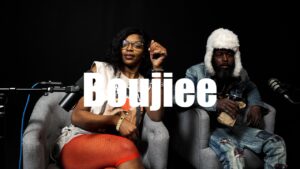In a candid conversation, Jay Hill and Alex explored the shifting dynamics of hip-hop’s relationship with controversial public figures, particularly when it comes to performing for someone like Donald Trump. Referencing an infamous moment in hip-hop history, they discussed how Snoop Dogg, who once criticized artists for performing at Trump’s inauguration, later found himself participating in the very same type of event. It’s a prime example of how opinions evolve over time, and, as the hosts highlight, there’s no shame in admitting a change of heart.
“The internet never forgets,” Jay Hill points out, emphasizing that once an opinion is out there, it’s forever part of an artist’s public history. In this era of constant scrutiny, artists are often left defending their past actions, especially when their stance on controversial figures shifts for reasons tied to financial gain.
The conversation shifts to the idea that for many artists, particularly in hip-hop, performing for figures like Trump is less about political alignment and more about securing the “bag.” Jay Hill and Alex both express their understanding of the financial motivations behind these decisions, acknowledging that artists are making choices based on what’s best for their careers—even if that means working with a controversial figure to further business ventures.
For artists like Snoop Dogg or Rick Ross, Jay Hill speculates, the financial incentive could come in the form of lucrative deals tied to high-profile events or ventures such as cryptocurrency launches or corporate sponsorships. These opportunities are a powerful motivator, even if they come at the expense of public perception.
As the conversation continues, Jay Hill draws parallels with corporate America, noting how companies like Meta and Home Depot have adjusted their strategies based on political climates, often pulling back on diversity and inclusion initiatives when they no longer benefit their bottom line. The hosts draw the conclusion that the entertainment industry, much like the corporate world, often makes decisions based on financial motivations rather than political ideals.
They also touch on figures like Kodak Black, who benefitted from Trump’s actions—such as his presidential pardon. For an artist in that position, supporting Trump may not seem as strange as it does for those with no personal gain from the former president’s actions. In the end, Jay Hill and Alex agree that, whether driven by politics or profits, decisions made by artists ultimately reflect what’s best for their individual careers.
The conversation reveals a larger truth: when it comes to the intersection of hip-hop and controversial figures, it’s not always about political ideology. Instead, financial incentives often play the leading role, guiding artists to make decisions that may surprise their fans, but make perfect sense in the context of securing the future of their careers.






